Family Life & Community Bonds
Nurturing Traditions That Hold Us Together
From cradle to legacy, family is where life begins and love never ends. Explore timeless advice passed down through generations on parenting, sharing duties, storytelling, and creating a home full of trust and laughter.
Why It Matters
Strong bonds build resilient lives and healthier communities.
How to Use
Read stories and tips related to family routines, shared meals, and emotional support
Try bringing back small traditions like Sunday meals or handwritten notes
Use the examples to strengthen your own family or community ties
Grandma Tip
“In the old days, we always ate together—no phones, no rush. That’s how we stayed close.”
🇳🇴 Tradition from Norway
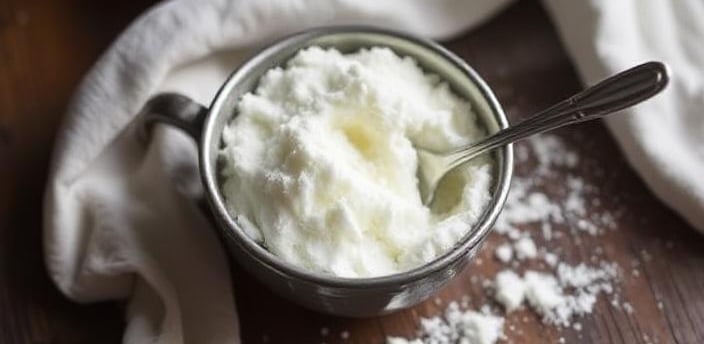

🇳🇴 Norway
Potato Starch for Polishing Silver
Grandma’s Shine Secret from the Nordic Pantry
In traditional Norwegian households, silver cutlery and jewelry were often cleaned with homemade solutions—one of the simplest being potato water or starch left over after boiling.
Why It Works:
Potato starch contains natural enzymes that help lift tarnish and gently clean metal surfaces without scratching. It's a sustainable, non-toxic alternative to chemical polish.
How to Use It:
Boil 2–3 potatoes in water until tender.
Remove potatoes and let the water cool.
Soak silver items in the starchy water for 30 minutes.
Rinse and buff with a soft cloth.
Grandma Tip:
Use the leftover boiled potatoes for dinner and the water for cleaning—nothing wasted! Works best on lightly tarnished pieces.
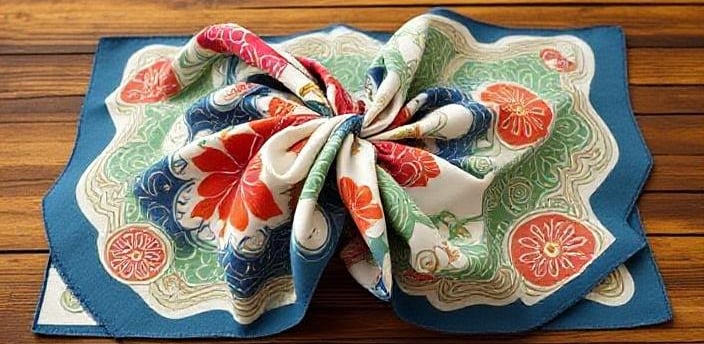

🇯🇵 Japan
Furoshiki: Cloth Wrapping for Gifts and Storage
Artful Folding with Deep Tradition
Used for centuries in Japan, furoshiki is a square cloth used to wrap gifts, carry goods, or store personal items. It blends functionality with cultural elegance, often passed down through generations.
Why It Works:
Furoshiki eliminates single-use wrapping and turns everyday carrying into a reusable, eco-friendly ritual. The folding techniques are easy to learn and require no knots or tape.
How to Use It:
Choose a square cotton or silk cloth.
Place item in center and fold corners over in desired pattern.
Tie ends together or tuck for a secure hold.
Reuse for shopping, gifts, or lunchbox wrapping.
Grandma Tip:
Use colorful old scarves or handkerchiefs instead of buying new cloths. It's both practical and beautiful.
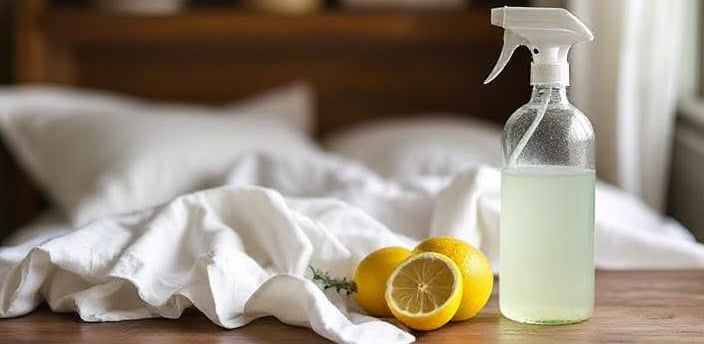

🇫🇷 France
Lemon and Vinegar Linen Spray
Elegant Freshness from the French Countryside
Before store-bought fabric sprays, French grandmothers freshened linens with a homemade blend of lemon and vinegar—used on bedding, tablecloths, and wardrobes.
Why It Works:
Lemon neutralizes odors and adds brightness, while vinegar kills bacteria and softens fabrics.
How to Use It:
Mix 1 cup water, ½ cup white vinegar, and juice of half a lemon.
Pour into a spray bottle and shake well.
Lightly mist over linens and hang to air-dry.
Grandma Tip:
Add a few sprigs of lavender or rosemary to the bottle for a subtle, floral note. Works wonders on musty storage items too.
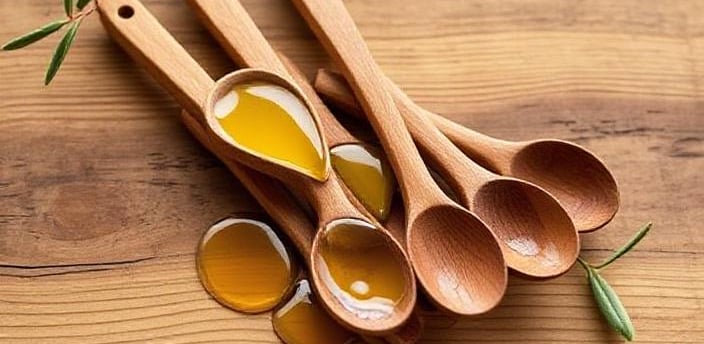

🇲🇦 Morocco
Olive Oil for Polishing Wooden Utensils
Desert Wisdom for Nourishing Wood
In Moroccan households, especially in Berber villages, wooden spoons, cutting boards, and bowls are polished with local olive oil to keep them hydrated and crack-free.
Why It Works:
Natural oils soak into dry wood, preventing splinters and extending the life of handmade tools. Olive oil also adds a subtle luster.
How to Use It:
Rub a small amount of olive oil onto clean, dry wooden utensils.
Let sit for 10–15 minutes.
Wipe off excess with a clean cloth.
Repeat once a month.
Grandma Tip:
Don’t use vegetable oils—they go rancid. Use olive or food-safe mineral oil only.
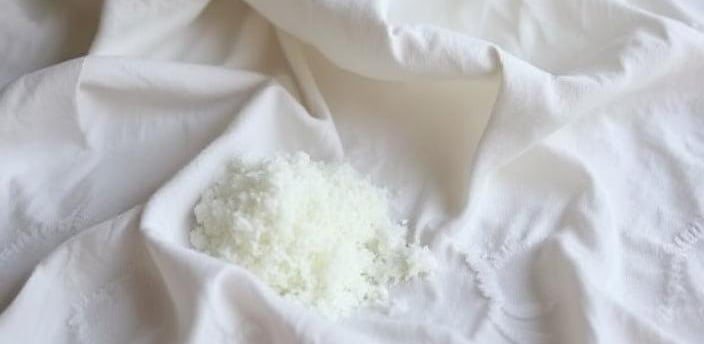

🇵🇱 Poland
Starch from Boiled Potatoes to Iron Linen
A Crisp Finish from the Old Country
Polish grandmothers saved water from boiled potatoes and used the starchy solution to stiffen and freshen household linens before ironing.
Why It Works:
The starch provides structure and makes fabrics look smoother and more refined, perfect for tablecloths and ceremonial clothing.
How to Use It:
After boiling potatoes, strain and save the starchy water.
Let it cool and pour into a spray bottle.
Lightly spray onto fabric before ironing.
Grandma Tip:
Only use on cotton or linen. It adds an elegant, old-world finish that lasts for days.
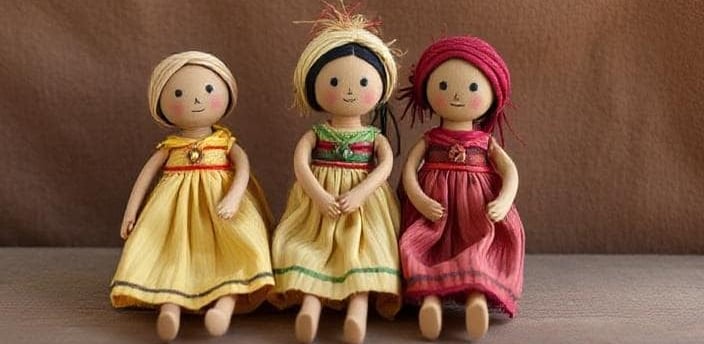

🇲🇽 Mexico
Corn Husk Dolls for Teaching Empathy
Lessons of Care from Tiny Hands
In rural Mexican villages, grandmothers often taught children responsibility and empathy by making corn husk dolls—simple figures crafted from dried corn leaves during harvest season.
Why It Works:
Making and caring for these handmade dolls helped children practice nurturing, patience, and storytelling through play.
How to Use It:
Soak corn husks until soft
Fold and tie to form arms, body, and dress
Decorate with scraps of cloth or string
Use as toys or decoration during harvest festivals
Grandma Tip:
Teach little ones to name and care for their dolls—it's a gentle way to prepare them for real caregiving.
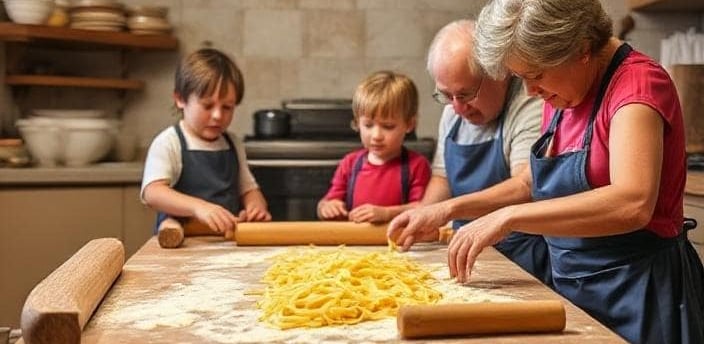

🇮🇹 Italy
Sunday Pasta-Making as Family Bonding
Rolling Dough, Rolling Memories
In many Italian households, making pasta from scratch was not just about food—it was a weekly ritual bringing generations together around the kitchen table.
Why It Works:
Shared routines strengthen family ties and give children a sense of belonging and contribution.
How to Use It:
Make simple dough from flour and eggs
Let kids help knead and roll with a pin or machine
Cut into strips and cook together for a shared meal
Grandma Tip:
“Messy hands, full hearts.” It’s not just about the pasta—it’s the time spent side by side.


🇰🇪 Kenya
Story Circles by the Fire
Oral Wisdom from One Generation to the Next
In Kenyan family traditions, elders would gather children around the fire at night to share proverbs, riddles, and ancestral stories.
Why It Works:
This practice strengthens cultural identity, communication skills, and emotional bonds across generations.
How to Use It:
Set aside screen-free evenings for shared stories
Let each person tell a tale, real or made-up
Include laughter, lessons, and interaction
Grandma Tip:
“A story told well is remembered for life. A story never told is forgotten forever.”
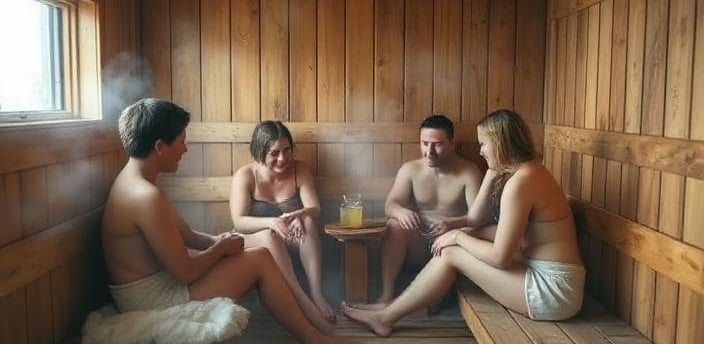

🇫🇮 Finland
Sauna Time as Quiet Togetherness
Steam, Silence, and Respect
In Finnish culture, families often gather in the sauna not just for cleansing, but for calm connection—speaking little, listening deeply.
Why It Works:
Shared silence fosters reflection and respect, while warmth creates physical and emotional comfort.
How to Use It:
Visit a sauna or simulate with a hot bath
Be fully present; no phones, no noise
End with cold water and tea or juice
Grandma Tip:
“In the steam, we listen more than we speak. That’s where peace grows.”
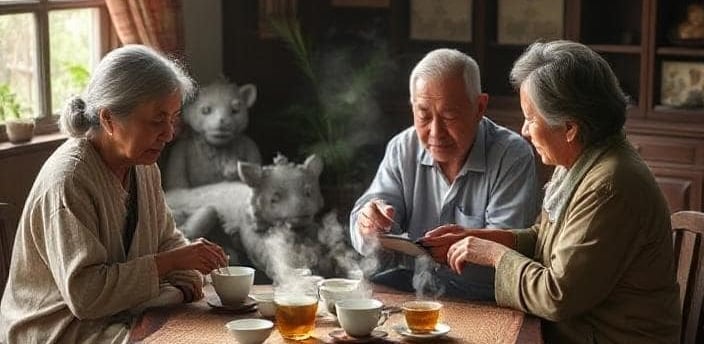

🇻🇳 Vietnam
Multi-Generational Morning Tea
Wisdom Served with Steam
In Vietnamese homes, it’s common for elders to begin the day with tea, inviting younger family members to sit and share quietly before the rush begins.
Why It Works:
Establishes ritual, reinforces hierarchy with warmth, and makes room for gentle guidance.
How to Use It:
Brew green or jasmine tea in the morning
Sit together for 10 minutes in calm
Let advice come naturally, not forced
Grandma Tip:
Morning tea is for more than drinking—it’s for grounding your family in each other.


